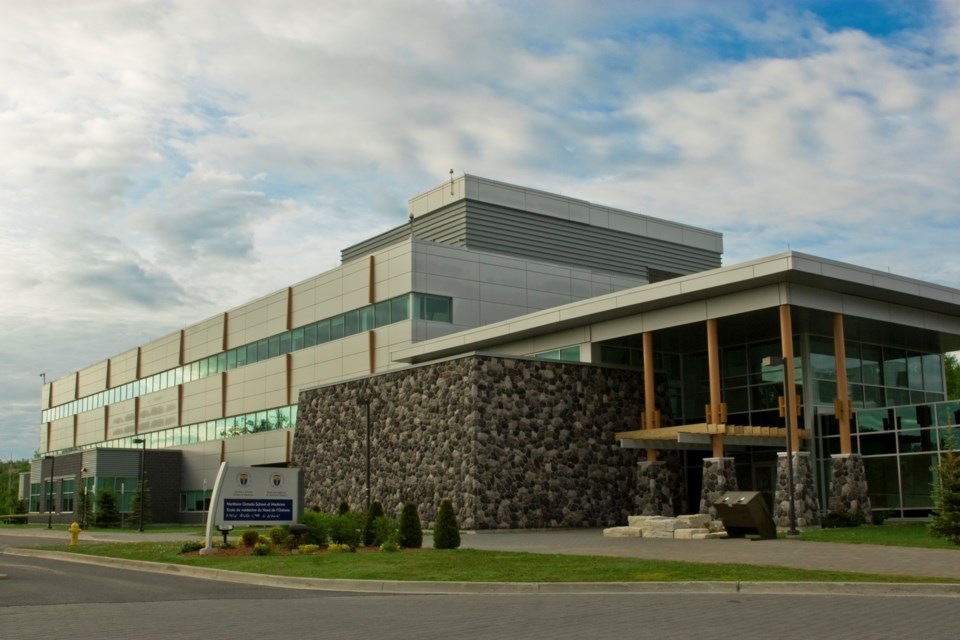As part of a solution to Sault Ste. Marie's doctor shortage, a push for a "new, innovative" regional campus of Northern Ontario School of Medicine (NOSM U) is expected to launch next week.
"NOSM U. has confirmed that they are willing to collaborate on the development of this business case and funding proposal," says Tom Vair, chief administrative officer at City of Sault Ste. Marie.
At Monday's city council meeting, Vair will ask for $75,000 in community development funds toward the $100,000 cost of developing a business case for a NOSM campus in the Sault.
"Council is well aware of the challenges that are being experienced with the provision of primary care services in Sault Ste. Marie," Vair says in a report prepared for Mayor Matthew Shoemaker and councillors.
"Recently, the Group Health Centre (GHC) announced they will be removing 10,000 patients from their roster and this adds to the list of patients that are on waiting lists to receive primary care services.
"The issue of increasing primary care services in the community is not a new topic and conversations have been underway for some time. The recent news at GHC has accelerated discussions and the mayor and city staff have been involved in a number of conversations with health care organizations, the Physician Recruitment Committee, physicians, local Member of Provincial Parliament Ross Romano, NOSM U and others on this issue."
"The business case and funding proposal will explore the establishment of a regional campus that produces not just doctors but also the broader talent and skills required to meet patient needs with a team-based healthcare approach that utilizes advanced technology to coordinate and deliver best-in-class services tailored for northern Ontario," Vair said in his report.
He cites three principal benefits from a Sault campus:
- recruitment – local physician recruitment efforts have demonstrated that almost half of the recruits to the community have spent time in Sault Ste. Marie. Becoming familiar with the community and their workplace environment has led them to establish in Sault Ste. Marie after completing their studies. Having a campus in Sault Ste. Marie will increase the number of students living and working in the community
- retention – having a regional campus will appeal to doctors and medical practitioners as they can locate in a community with ongoing research, education and learning opportunities
- economic development – a regional campus would bring a number of jobs related to the operations of the campus and the construction or leasehold improvements to house campus facilities
Vair describes the business case and funding proposal as a crucial first step.
"The study will review and confirm the vision for the regional campus, consider potential locations, establish the funding required and identify timelines for the project," he says.
"While this is not an immediate fix for the primary and acute healthcare issues being experienced by the community, it is an important step forward to create a long-term solution that addresses the needs of the region."
The city is also expected to seek support from:
- Algoma University
- Sault College
- Algoma Ontario Health Team
- Sault Area Hospital
- Group Health Centre
- Algoma District Medical Group
- Algoma West Academy of Medicine
- Superior Family Health Team
- Algoma Public Health
- local First Nations and the Metis community
- the business community
Sault Area Hospital has agreed to chip in $25,000 to advance the initiative.
If city council agrees on Monday, the Sault will retain a consultant, working with NOSM U and other community stakeholders.
Monday's city council meeting will be live-streamed on SooToday starting at 5 p.m.
